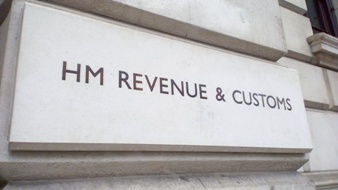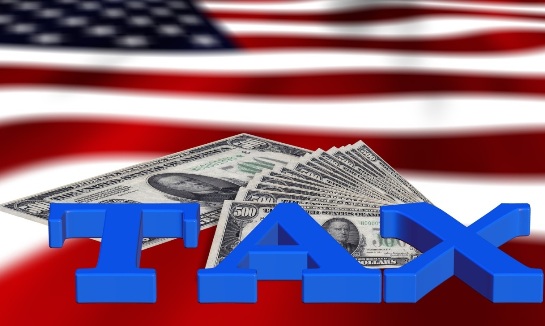The Economic Substance Laws - An Overview of BVI and Belize -

What is economic substance and why does it exist?
The OECD Forum on Harmful Tax Practices (FHTP), a sub-body of the Base Erosion and Profit Shifting (BEPS) Inclusive Framework, defined the global standard that requires companies to have substantial economic presence in a jurisdiction where they operate (also known as “economic substance”). The FHTP is responsible for assessing and monitoring the BEPS Action 5 (assessment of preferential tax regimes, transparency and substantial activities requirements) for all member jurisdictions. The Code of Conduct Group (COCG) within the EU's Economic and Financial Affairs Council (ECOFIN) has turned its attention to zero-tax offshore financial centers. The COCG has determined that jurisdictions that fail to satisfy the COCG's requirement to end "preferential treatment" for non-resident companies are to be deemed "non-cooperative" or “blacklisted”. Those that meet most COCG requirements and show an effort to resolve shortcomings are "grey-listed," while those that meet all requirements are "white-listed." Economic substance legislation was effected to address the COCG's requirements and to avoid “non-cooperative” labelling. The legislations in various offshore financial centers set out the framework for determining when certain entities may be required to demonstrate economic substance.
Who needs to classify?
Every entity. They need to show that they have taken reasonable steps to demonstrate that they have considered their position under the economic substance legislation and produce robust evidence of classification.
Who needs to determine whether a relevant legal entity is carrying on a relevant activity?
The directors of all relevant legal entities are under an obligation to ensure they have classified their entity and understood its obligations under the economic substance law. The competent authorities are clear that it is expected to produce robust documentary evidence of the basis of the entity’s classification. Examples of this would be a formal memo on the classification and/or extensive board resolutions which show the analysis having been conducted.
Which entities need to demonstrate economic substance?
The legislation imposes economic substance requirements on companies which carry on one or more of the following relevant activities:
- banking business;
- insurance business;
- fund management business;
- finance and leasing business;
- shipping business;
- holding business;
- headquarters business;
- distribution and service center business; or
- intellectual property business*
*Belize IBCs: Section 5(4) of the International Business Companies Act, Chapter 270 of the Substantive Laws of Belize, Revised Edition 2011 (as amended by Act No. 17 of 2019) came into force on 1st January 2019, and provides that Belize International Business Companies (IBCs) shall not acquire, hold, own, or deal in any Intellectual Property Assets (“IP assets”). IP assets include: “Any intellectual property right in intangible assets, including but not limited to copyright, patents, trademarks, brand, and technical know-how, from which identifiable income accrues to the business (such income being separately identifiable from any income generated from any tangible asset in which the right subsists).”
What are the steps to determine the applicability of economic substance and classify an entity?
- Is the entity of a type which falls within the economic substance legislation?
- Is it carrying on a relevant activity?
- Is it resident for tax purposes in another jurisdiction?
If any of the first two questions is answered with no or the third question with yes, then the economic substance requirements are not applicable.
Where do I begin?
The best place to start is with our ESA questionnaire that was sent to you:
- What is your Company’s core income-generating activity
- Country where the activity is directed and managed
- Annual Sales turnover of the activity
- Country of physical office or premises for conducting the activity
- Country of Majors Customers of the activity
- Country of Major Suppliers of the activity
- Country of your Employees for performing the activity
- Number of Employees for performing the activity
- Is your Company the tax resident of any jurisdiction and if so, since when
What is a holding business and the economic substance required?
A pure equity holding entity, which carries on no relevant activity other than holding equity participations in other entities and earning dividends and capital gains, has adequate substance if it complies with its statutory obligations and has adequate employees and premises for holding equity participations and, where it manages those equity participations, has adequate employees and premises for carrying out that management.
What are the “core income-generating activities” for other relevant activities?
Distribution and service center business means
(i) transporting and storing goods;
(ii) managing stocks;
(iii) taking orders;
(iv) providing consulting or other administrative services;
Headquarters business means
(i) taking relevant management decisions;
(ii) incurring expenditures on behalf of affiliates;
(iii) coordinating group activities;
Intellectual property business means
(i) where the business concerns intellectual property assets such as patents, research and development;
(ii) where the business concerns non-trade intangible assets such as brand, trademark and customer data, marketing, branding and distribution.
A legal entity complies with the economic substance requirements if
- the relevant activity is directed and managed in the jurisdiction, having regard to the nature and scale of the relevant activity;
- there are an adequate number of suitably qualified employees in relation to that activity who are physically present;
- there is adequate expenditure incurred;
- there are physical offices or premises as may be appropriate for the core income-generating activities; and
- where the relevant activity is intellectual property business and requires the use of specific equipment, that equipment is located in the jurisdiction.
What are the filing deadlines?
BVI:
Legal entities formed before 1 Jan 2019 have their “financial period”, a period of one year, commencing on 30 June 2019. Reporting must be completed annually within 6 months after the financial period. Legal entities incorporated on or after 1 Jan 2019 have to submit their annual report within 6 months from the end of one year since its incorporation date.
Belize:
The first fiscal year reporting period for entities incorporated before January 1, 2020 shall commence on April 30, 2020. Entities will be required to file a return annually, within 9 months, after the end of the fiscal year reporting period. Legal entities incorporated on or after 1 Jan 2020 have to submit their annual report within 9 months from the end of one year since its incorporation date.
What if the company does not carry out a relevant activity, is there still any filing requirement?
The Economic Substance reporting is an annual declaration requirement, irrespective of the activity of the company.
Are there other matters to be aware of?
The new laws require all Belize companies to apply for Tax Identification Numbers (TIN) to complete their filing requirements. It is stressed that having a TIN does not mean that the IBC is liable for tax in Belize. The purpose for this initiative is strictly for regulatory and tax authorities to efficiently monitor the status of the IBC.
There have been new significant changes implemented in Belize tax laws which eliminate the preferential tax treatment for International Business Companies that have been exempted from assessment or payment of taxes in Belize. Effective from 1 Jan 2020, every individual, self-employed person, professional, firm, or partnership will be subject to business tax on all receipts regardless of receiving in or out of Belize.
The changes also provide a presumption of tax residence in Belize for all entities registered in Belize, except for companies which are tax residents in jurisdictions outside Belize based on evidence that they are registered taxpayers in foreign jurisdictions. If a deemed tax resident company does not carry out a relevant activity according to economic substance rules and has no income for the tax period or if the income is less than USD37,500.00 then there will be no taxes to be paid and the Company should file a nil report. A non-included entity can also claim tax exemption as a non-resident company by submitting applicable forms and declarations.
Companies will need to file a tax return annually by 31 March for the preceding calendar year (basis year). Companies incorporated after 16 October 2017 have the first basis year commencing 2020. For companies incorporated on or before 17 October 2017 the first basis year is 2021.
Can I speak to someone to find out more information?
Certainly, please reach out to your company support team or contact us at intray@zetland.biz.
While every effort has been made to ensure the details contained herein are correct and up-to-date, Zetland Fiduciary Group does not accept any legal or other responsibilities for any error or omissions. The information contained herein regarding organizations, companies, securities, funds, laws, ordinances, rules, regulations, jurisdictions, private placements, biographies, etc. is for reference purposes only, is not intended nor should be construed as investment or other advice, and is provided by the Zetland Fiduciary Group as a complimentary service. Many sources were used in compiling this information and due diligence must be exercised and additional research should be conducted before acting on any information contained herein. Duplication of any of the information or contents found within this information sheet without the expressed written permission of the Zetland Fiduciary Group is strictly prohibited.

















